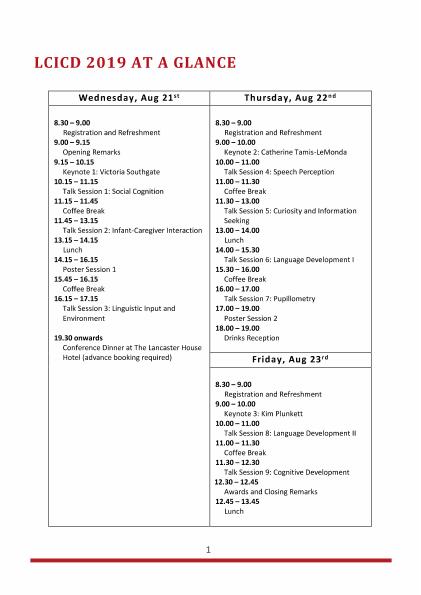Evento
Do socio-economic disparities imply differences in toddlers' comprehension of lexical categories?
Tipo del evento:
Conferencia
Nombre del evento:
4th Lancaster Conference on Infant and Early Child Development
Fecha del evento:
21/08/2019
Institución Organizadora:
Lancaster University;
Título del Libro:
Lancaster Conference on Infant and Early Child Development 2019
Editorial:
Lancaster University
Idioma:
Inglés
Clasificación temática:
Resumen
The impact of socio-economic status -SES- on children's vocabulary has been amply documented (Pace, Luo, Hirsh-Pasek & Golinkoff, 2016). However, few studies have analyzed vocabulary comprehension: several, using standardized tests (Rowe, 2012) or assessing online processing of familial nouns (Fernald & Weisleder, 2013). Another fruitful strand of research, the Computerized Comprehension Test -CCT- (Friend & Keplinger, 2003) measures children’s comprehension of nouns, verbs and adjectives of different level of difficulty implementing a forced-choice task on a touch screen. The aforementioned studies have targeted relatively educated and rich populations -incomplete high school versus college graduates- in the US (Friend et.al., 2012) and Western Europe (Fibla, Scaff, & Cristia, in preparation). Findings regarding these educational ranges for Mexican Spanish-speaking population indicate a weaker impact of SES (De Anda et al., 2016). Friend & Keplinger (2003) found differences in the comprehension of various lexical categories: children comprehend nouns better than verbs and the latter better than adjectives. Given that SES implies variations in children’s linguistic environment and consequently in the lexical forms they access (Hoff, 2013), we ask about SES-differences in the comprehension of nouns, verbs and adjectives in an Argentinian Spanish-speaking population in which economic and educational disparities are more pronounced. We designed a task inspired by the CCT, thus containing 41 pairs of words -nouns, verbs, adjectives- with different levels of difficulty. In an effort to create a culturally nonbiased test, the lexical items were chosen matching frequency of occurrence across low and middle SES groups in an Argentinian corpus (480 hours). Findings in a sample of 112 low and middle SES toddlers (2:6-3) showed SES differences in the accuracy of children’s comprehension of nouns and adjectives, but not verbs (see Figure); this might be linked to differences in the vocabulary composition of child directed speech between SES groups in this population.
Palabras clave:
Comprehension of lexical
,
Children
,
Nouns
,
Verbs
,
Adjectives
Archivos asociados
Licencia
Identificadores
Colecciones
Eventos(CIIPME)
Eventos de CENTRO INTER. DE INV. EN PSICOLOGIA MATEMATICA Y EXP. "DR. HORACIO J.A RIMOLDI"
Eventos de CENTRO INTER. DE INV. EN PSICOLOGIA MATEMATICA Y EXP. "DR. HORACIO J.A RIMOLDI"
Citación
Do socio-economic disparities imply differences in toddlers' comprehension of lexical categories?; 4th Lancaster Conference on Infant and Early Child Development; Lancaster; Reino Unido; 2019; 90-91
Compartir




